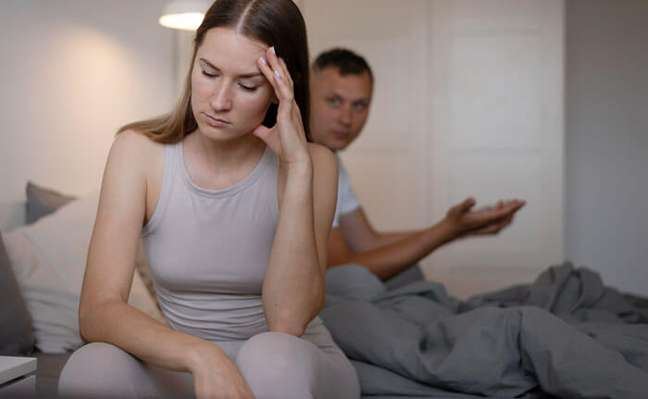Poor sleep affects many daily activities, including sexual ones

According to a University of Chicago study, there is a strong link between sexual activity and sleep. After a bad night’s sleep, the testosterone measurement in men was lower than a good night’s sleep.
According to sleep specialist Josué Alencar, creator and director of Persono, a business unit of the Coteminas group, what happens is that the production of testosterone, a hormone that arouses sexual desire, usually increases at the beginning of falling asleep and it increases over time, with its peak early in the morning.
“Individuals who sleep poorly or suffer from sleep disorders such as apnea and insomnia have a decline in the release of testosterone and estrogen, particularly if the difficulty sleeping is in the second half of the night,” he says.
The importance of testosterone for men and women
It is important to remember that, although in smaller quantities than in men, testosterone is an important hormone in the body of women. In men, it is also related to the development of reproductive tissues and sperm production, as well as increased muscle mass, hair growth, and well-being.
Producing less testosterone than you need can affect your overall health, not just sexual, and to check if the levels are within the expected, consult a doctor.
In women in particular, lack of libido is a common problem, with fluctuations, which can be caused by anything from stress to hormonal changes. It is estimated that nearly 1/3 of women between the ages of 18 and 59 suffer from low sex drive, but according to a new study, one solution may be to sleep more and better. In the experiment, conducted on 171 women who were not taking antidepressants, there was a 14% increase in sexual arousal with each additional hour of sleep.
In them, the decline in estrogen production, crucial for an egg’s development and monthly release, also affects the metabolism of several neurotransmitters that affect the sleep cycle, including serotonin, known as the happiness hormone or pleasure hormone. . Therefore, there is a drop in libido and greater mood swings as a woman begins to approach menopause.
There is also a proven connection with erectile dysfunction in men, but couples where one or both partners are sleep deprived can also have fertility problems.
!
Source: Terra
Benjamin Smith is a fashion journalist and author at Gossipify, known for his coverage of the latest fashion trends and industry insights. He writes about clothing, shoes, accessories, and runway shows, providing in-depth analysis and unique perspectives. He’s respected for his ability to spot emerging designers and trends, and for providing practical fashion advice to readers.





![Tomorrow Belongs to Us: What’s in store for Friday 17 October 2025 Episode 2055 [SPOILERS] Tomorrow Belongs to Us: What’s in store for Friday 17 October 2025 Episode 2055 [SPOILERS]](https://fr.web.img5.acsta.net/img/96/95/96957c8eef9a3bd87daf877432629ae3.jpg)


